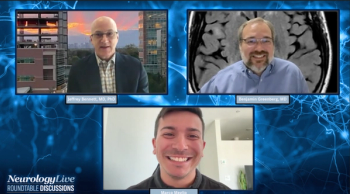
A global cohort study identified distinct clinical patterns and higher relapse rates in pediatric patients with MOGAD with non-P42 MOG antibody binding profiles.

A global cohort study identified distinct clinical patterns and higher relapse rates in pediatric patients with MOGAD with non-P42 MOG antibody binding profiles.

Neuromyelitis optica spectrum disorder (NMOSD) is a rare autoimmune CNS condition with distinct subtypes—AQP4-IgG positive, MOGAD, and double-negative—each requiring tailored diagnostic and treatment approaches.

In this episode, a pair of neuroimmune experts discussed some of the emerging research for patients with MOGAD, highlighting the need for immunological markers, remodeling therapies, and enhancements to diagnostic criteria. [WATCH TIME: 5 minutes]

The pair of neurologists provided clinical insight on a number of lingering non-treatment unmet needs for patients with MOGAD, including improved care for pediatric patients and underreported complications like sleep disturbances and genitourinary issues in adults. [WATCH TIME: 5 minutes]

In this discussion, the pair of neurologists explore the latest drug development and ongoing clinical trials for MOGAD, a rare neuroimmune disorder. [WATCH TIME: 4 minutes]

In this segment, Bennett and Greenberg explore the diagnosis, acute treatment, and long-term management of MOGAD, highlighting current therapies and ongoing research. [WATCH TIME: 8 minutes]

In this episode, Greenberg and Bennett provide some perspective on the fluidity of MOGAD diagnosis and how it could potentially change over time as more is understood about neuroimmune disorders. [WATCH TIME: 5 minutes]

In this segment, the duo of neurologists provided a number of informative considerations treating clinicians should take when diagnosing MOGAD, emphasizing careful testing and interpretation of data in this complex process. [WATCH TIME: 4 minutes]